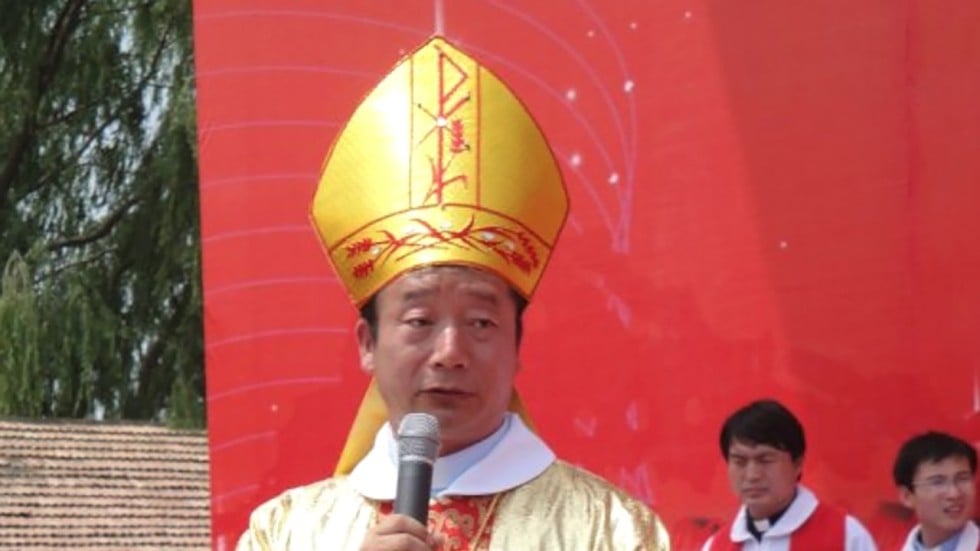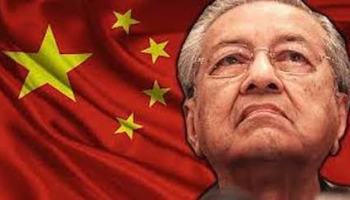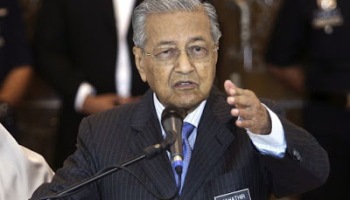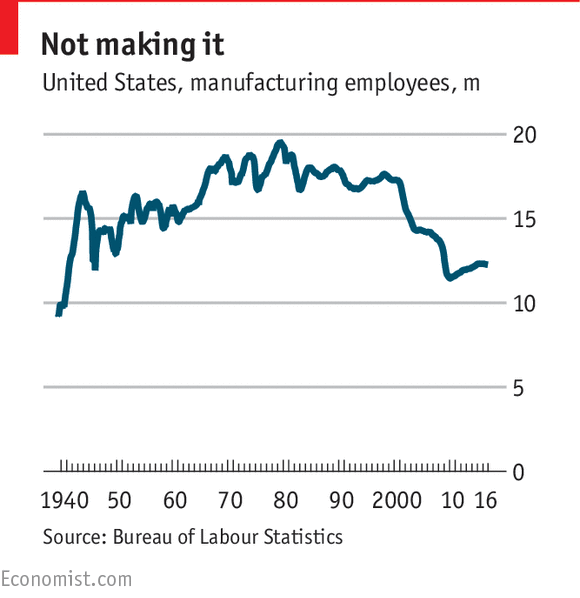https://youtu.be/rh39urccnYw

PUTRAJAYA: In an unprecedented turn of events, former prime minister Datuk Seri Najib Tun Razak and his wife Datin Seri Rosmah Mansor will both be in court today.
After spending a night in the MACC lockup, investigators are bringing Rosmah to the Sessions Court in Kuala Lumpur to face a slew of money laundering charges while the case management for one of Najib’s cases will take place at the same time.
Najib is facing some 32 charges including criminal breach of trust, abuse of power and money laundering of funds linked to 1Malaysia Development Bhd and its offshoot, SRC International Sdn Bhd.
So far, Najib has been brought to court three times to face charges since July 4.
As for Rosmah, today will be the first time she will be formally charged in relation to money laundering activities.
It is believed that Rosmah could be slapped with up to 20 charges.
Rosmah, 67, will go down in Malaysian history as the first wife of a prime minister to be indicted.
The arrest came after she was questioned for more than four hours yesterday morning at the Malaysian Anti-Corruption Commission (MACC) headquarters here.
The Star, followed by other media, broke the news of her arrest after the lunch break yesterday.
At 3.20pm, MACC confirmed her arrest.
The MACC made the arrest after being given the go-ahead by the Attorney General’s Chambers.
The commission also said that Rosmah would be charged under Anti-Money Laundering, Anti-Terrorism Financing and Proceeds of Unlawful Activities Act.
However, Rosmah’s lawyers said they were unaware of the charges that would be brought on their client.
“We were only informed by the MACC of her arrest and that she would be brought to the Kuala Lumpur Sessions Court to be charged tomorrow.
“They did not tell us the nature of the charges,” said Datuk Geethan Ram Vincent.
The media who were stationed outside the MACC building from 9am waited for Rosmah who was called in for questioning for the third time since June 5.
The investigations are related to the trail of funds from 1MDB and SRC International.
She arrived at the MACC headquarters at 10.42am, dressed in a light green baju kurung and a matching selendang.
As she walked past the crowd of reporters, she appeared calm and even stopped to shake hands.
Sources said that Najib was informed of his wife’s arrest.
“He appeared calm,” said a source when asked on Najib’s reaction to the news of Rosmah’s arrest.
Asked about Rosmah’s condition, Geethan said: “She’s ok.”
Rosmah was first called to the MACC on June 5 to answer questions on SRC International Sdn Bhd.
On Sept 26 and yesterday, she was interrogated over the 1MDB scandal and money laundering.
The first inkling of Rosmah being charged was on Sept 24 after MACC chief commissioner Datuk Seri Shukri Abdull was quoted as saying that the investigations on her had been completed and the report had been submitted to the Attorney General.
He said then that it was up to the AG to prosecute Rosmah.
Yesterday, Najib was also detained for questioning on matters related to 1MDB but in another location and by a different law enforcement agency.
While Rosmah was in MACC, Najib was giving his statement at the Anti-Money Laundering and Anti-Terrorism Financing Prevention Unit (Amla) headquarters at Menara KPJ in Jalan Tun Razak.
Pemantau Malaysia Baru president Datuk Lokman Noor Adam, who is also an Umno supreme council member, announced the day before on Facebook that Najib would be called in by the police at 10am yesterday.
Najib was taken into the building through a side entrance after he arrived at Menara KPJ at about 11am, giving the media the slip.
He managed to evade the press when he left the building from the elevated car park at 1.05pm, nearly three hours after he came to the Amla headquarters.
Yesterday morning, a white luxury MPV was seen leaving the couple’s house in Jalan Langgak Duta earlier in the morning.
However, it was not known whether it was transporting the couple or either one of them.
Prior to his questioning at Menara KPJ yesterday, Najib, who is Pekan Member of Parliament, was called up on Aug 27 and 30 and then on Sept 30 to have his statement recorded on the case.
In both instances, it was with the MACC.
Exactly a week ago on Sept 26, Rosmah was called in for a second round of questioning – this time on 1MDB – which lasted 13 hours, also at the MACC.
Credit: mazwin nik anis, joseph kaos jr, royce tan, vincent tan, chu mei fong The Star
The 17 charges on Rosmah - MalaysiaGazette
 | |
| Datin Seri Rosmah Mansor, wife of former Malaysian Prime Minister Datuk Seri Najib Tun Razak was being charged under the Anti-Money Laundering, Anti-Terrorism Financing and Proceeds of Unlawful Activities Act (AMLATFPUAA) 2001 at the Kuala Lumpur Sessions Court. PIC: AFIQ RAZALI / Malaysia Gazette / 4 OCTOBER 2018 |
By Mohd Zaini Samsu Hadi
KUALA LUMPUR – Datin Seri Rosmah Mansor, wife of former Prime Minister Datuk Seri Najib Razak was slapped with 17 charges on money-laundering involving a total of RM7 million.
Following are the list of charges on Rosmah:
- Depositing RM200,000 from illegal activities into personal account on 4 December 2013
- Depositing RM100,000 from illegal activities into personal account on 15 December 2013
- Depositing RM200,000 from illegal activities into personal account on 23 December 2013
- Depositing RM100,000 from illegal activities into personal account on 28 January 2014
- Depositing RM100,000 from illegal activities into personal account on 29 January 2014
- Depositing RM200,000 from illegal activities into personal account on 28 February 2014
- Depositing RM100,000 from illegal activities into personal account on 14 March 2014
- Depositing RM100,000 from illegal activities into personal account on 8 April 2014
- Depositing RM1.6 million from illegal activities into personal account through 8 transactions between 4 September 2014 and 22 December 2014
- Depositing RM3.85 million from illegal activities into personal account through 127 transactions between 21 January 2015 to 12 December 2015.
- Depositing RM510,000 from illegal activities into personal account through 87 transactions between 28 January 2016 and 7 November 2016
- Depositing RM30,000 from illegal activities into personal account through 5 transactions between 28 March 2017 and 8 June 2017
- Failure to declare RM500,000 deposited into her personal account between 4 December 2013 and 23 December 2013 as required by the Income Tax Act
- Failure to declare RM2.2 million deposited into her personal account between 28 January 2014 and 22 December 2014 as required by the Income Tax Act
- Failure to declare RM3.85 million deposited into her personal account between 21 January 2015 and 12 December 2015 as required by the Income Tax Act
- Failure to declare RM510,000 deposited into her personal account between 28 January 2016 and 7 November 2016 as required by the Income Tax Act
- Failure to declare RM30,000 deposited into her personal account between 29 March 2017 and 8 June 2017 as required by the Income Tax Act
She shall be liable to imprisonment for a term not exceeding fifteen years and shall also be liable to a fine of not less than five times the sum or value of the proceeds of an unlawful activity or instrumentalities of an offence at the time the offence was committed or five million ringgit, whichever is the higher upon conviction. – MalaysiaGazette
Related stories:


The first wife of an ex-PM to be charged
Hour-long argument during case mention
Shafee optimistic about Najib’s chances
Extraordinary day in court for Najib and wife
Hour-long argument during case mention
Hold on to your hope in God, Najib tells Rosmah
Shafee’s cases to be heard in High Court
MACC going too far with my mum’s arrest, says Nooryana

Related posts:
Rosmah accused of witness tampering - Nation | The Star Online


The first wife of an ex-PM to be charged
Hour-long argument during case mention
Shafee optimistic about Najib’s chances
Extraordinary day in court for Najib and wife
Hold on to your hope in God, Najib tells Rosmah
Shafee’s cases to be heard in High Court
MACC going too far with my mum’s arrest, says Nooryana

Related posts:














 https://youtu.be/OCk4VkAKKFc
https://youtu.be/OCk4VkAKKFc 


